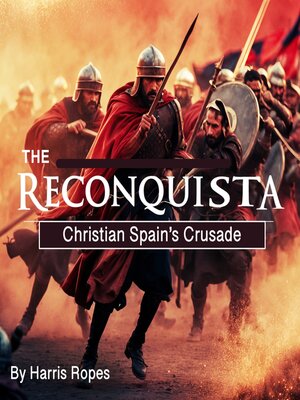
Sign up to save your library
With an OverDrive account, you can save your favorite libraries for at-a-glance information about availability. Find out more about OverDrive accounts.
Find this title in Libby, the library reading app by OverDrive.



Search for a digital library with this title
Title found at these libraries:
| Library Name | Distance |
|---|---|
| Loading... |
The Reconquista, meaning "reconquest" in Spanish, refers to the centuries-long struggle by Christian kingdoms to reclaim the Iberian Peninsula from Muslim rule. Its origins trace back to the early 8th century, when the Islamic Umayyad forces crossed the Strait of Gibraltar in 711 and swiftly conquered much of what is now Spain and Portugal. The defeat of the Visigothic King Roderic at the Battle of Guadalete marked the beginning of Muslim dominance in Iberia. Within a few years, nearly the entire peninsula had fallen under Muslim control, becoming part of the vast Umayyad Caliphate. This rapid conquest, however, did not erase the memory of Christian rule, especially in the remote and mountainous regions of the north.
In these isolated territories, remnants of the Visigothic nobility and clergy began to organize resistance. The Kingdom of Asturias, founded by Pelayo, a nobleman of likely Visigothic heritage, emerged as the first bastion of Christian defiance. According to tradition, Pelayo's victory at the Battle of Covadonga in 722 symbolized divine favor and the beginning of a sacred mission to restore Christian rule. Though modest in scope, this victory held immense symbolic weight and inspired future generations to continue the struggle. Over time, Asturias would expand and give rise to other Christian polities such as León and Castile, each taking up the cause of the Reconquista in their own right.
The idea of reconquest was not purely political; it was deeply tied to religious identity. The fall of the Visigothic kingdom was viewed by many Christians as a divine punishment for past sins, but it also fostered a sense of purpose and redemption. Reclaiming lost territories became not just a matter of sovereignty but a spiritual imperative. The Christian leaders and their subjects saw themselves as the defenders of the true faith, fighting to restore a sacred order.







